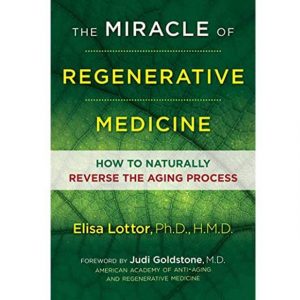Depression and Irritability
Believe it or not, hormone imbalances are a major cause of depression and irritability in men and women.
** Hormone Replacement Therapy – Call 424-247-4962 **
View Our Depression FAQs Here
To learn about how hormone therapy can help with depression and irritability request a free consultation today!
While many people are unaware of it, hormone imbalances are a major cause of depression and irritability in both men and women. Women may have more of an inkling of this connection since they frequently feel blue or irritable before their menstrual periods, when going through pregnancy, childbirth (postpartum depression), perimenopause, menopause and postmenopause. In addition, in our culture women are more likely to acknowledge negative feelings than are their male counterparts. However, Dr. Goldstone frequently sees men complaining of depression and apathy when their hormones are declining. It is also plausible that women may simply report feeling depressed more frequently than men.
Whatever your gender, If you have been experiencing irritability, uncharacteristic anger, or depression, Southern California Center for Anti-Aging is a good place to begin seeking answers. Dr. Judi Goldstone, in addition to being a board certified physician, is a specialist in anti-aging and hormone replacement therapy. Because she does in-depth diagnostic testing, she will be able to determine whether your psychological symptoms have an underlying hormonal balance as their cause. If so, her treatments will not only make you feel younger and more vigorous, but will have the added benefit of lessening your depression and irritability.
Defining Depression
Depression can be a serious and debilitating disorder. It is distinguishable from ordinary sadness which typically stems from an event — such as an illness, disability, death, trouble in a close relationship, loss of a job, etc. and which is usually self-limited. You should seek medical attention if you experience symptoms of depression, some of which may be lack of joy, fatigue, and extreme irritability, that don’t seem to have a reasonable cause and persist for a prolonged period of time.
Symptoms of Depression
Clinical depression may manifest with a number of symptoms, including:
- Prolonged sadness
- Loss of interest or pleasure in things once enjoyed (e.g. decreased libido)
- Changes in sleep patterns or appetite (unplanned weight loss or gain)
- Diminished self-esteem or self-confidence
- Lack of energy or fatigue
Hormonal Causes of Depression and Irritability
Hormonal imbalances may cause depression and irritability since there is already data implicating them in difficulty managing stress, reduced feelings of happiness or hope, and interference with normal sleeping and eating patterns.
Thyroid Dysfunction: Hypothyroidism (diminished level of thyroid hormones) is a known hormonal cause of depression in men and women. Low levels of thyroid hormones cause a reduction in serotonin, an essential neurotransmitter that positively influences mood and behavior.. Learn more about hyperthyroidism here.
Estrogen Deficiency: Estrogen deficiency in women during perimenopause or menopause is often associated with depression. A common sign of diminishing estrogen production is feeling overly sensitive to remarks by others or becoming tearful or crying for no apparent reason. Lowered levels of estrogen may also cause feelings of sadness and hopelessness.
The way estrogen improves mood, increases a sense of well-being, and promotes sleep is by enhancing serotonin levels. Estrogen also promotes increased amounts of the calming neurotransmitter gamma-aminobutyric acid (GABA). GABA is an anti-anxiety, anti-pain hormone that elevates endorphins, thereby producing pleasurable feelings. Estrogen also increases norepinephrine activity in the brain, which is responsible for improving mood, cognition, alertness and energy. You should be aware, however, that in some people elevated levels of norepinephrine cause anxiety, panic attacks and an agitated depression. Learn more about estrogen therapy here.
Progesterone: Progesterone is thought to promote good moods by boosting serotonin and GABA, which both work to decrease irritability, calm anxiety and dispel panic. Progesterone facilitates restful, refreshing REM sleep and less waking from deep sleep. Low levels of progesterone decrease serotonin, which can result in poor sleep and depression. Also, diminished amounts of progesterone prevent the balancing of the stimulating effects of estrogen and can lead to anxiety.. Learn more about progesterone therapy here.
Cortisol: Both elevated and low levels of cortisol have been associated with depression. Stress causes increased levels of cortisol to be released into the bloodstream, while the resolution of the stress typically causes cortisol levels to return to normal. When stress is an everyday occurrence, however, or when it persistently occurs at unpredictable intervals, cortisol levels can remain abnormally elevated.
High levels of cortisol may result in agitation and elevated blood sugar. When cortisol levels remain abnormally high, they may cause the level of serotonin in the brain to decrease, resulting in anxiety, insomnia, poor mood and depression. On the other hand, after excessive or prolonged stress, cortisol can also “burn out” and levels can fall dramatically. Surprisingly, low cortisol levels can also cause anxiety, irritability, inability to handle stress, fatigue and a feeling of being overwhelmed.
DHEA and Growth Hormone: Decreased levels of these hormones have been associated with depression in men and women. Produced in the body naturally, their production decreases with age and this decrease can affect mood and even mental functioning. In severely depressed patients, DHEA and human growth hormones (hGH) supplements can be helpful in improving mood and mental functioning. DHEA is classified as a neurosteroid, or neural hormone. In some recorded cases, it has been especially beneficial in improving mental function in patients with advanced HIV disease.
Testosterone: Frequently, depression in men is a result of the declining levels of testosterone that occur with aging. Low levels of testosterone lead to irritability, grumpiness, anxiety, mood swings, and loss of enthusiasm. Testosterone supplements elevate mood and in some cases relieve depression in men. The hormone works to improve mood by elevating levels of dopamine, (a “reward” neurotransmitter), serotonin, and noradrenaline in the brain. Testosterone enhances aerobic metabolism which increases overall energy, leading to increased vigor and enthusiasm. Women, too, normally have testosterone in their bodies and must be tested to keep their level of this hormone in the normal range. A sudden drop in testosterone can affect a woman’s libido, energy levels, and mood.
Irritability and Hormones
Irritability is an inappropriate or exaggerated amount of anger or impatience exhibited in response to a fairly benign situation. Because it so clearly affects those around the person suffering from the condition, it is often complained about when observed in parents, spouses, and other intimates. Sometimes, irritability is one way a person expresses depression or anxiety. In some cases, the condition may be due to a hormone imbalance. Other factors that may be responsible for irritability are:
- Stress
- Poor diet
- Drug or alcohol abuse
- Excessive caffeine
- Headache or other physical pain
- Infection
- Interactions of certain medications or drugs
- Withdrawal from alcohol, drugs, cigarettes, caffeine, or sugar
If you are troubled by irritability or depression, or find yourself becoming frustrated or impatient much too easily, you should come to the Southern California Center for Anti-Aging. A consultation with Dr. Goldstone can be invaluable and may be the beginning of a positive life change. If Dr. Goldstone finds that your emotional problems are being caused by one or more hormone imbalances, you can trust her to follow through with bioidentical hormone replacement therapy (BHRT) that will rejuvenate you and remind you of how wonderful it is to feel energetic and alive. Contact Dr. Goldstone today to schedule a consultation!
Contact Us Online
Our Office
— Liz Turner
Get In Touch With Us


